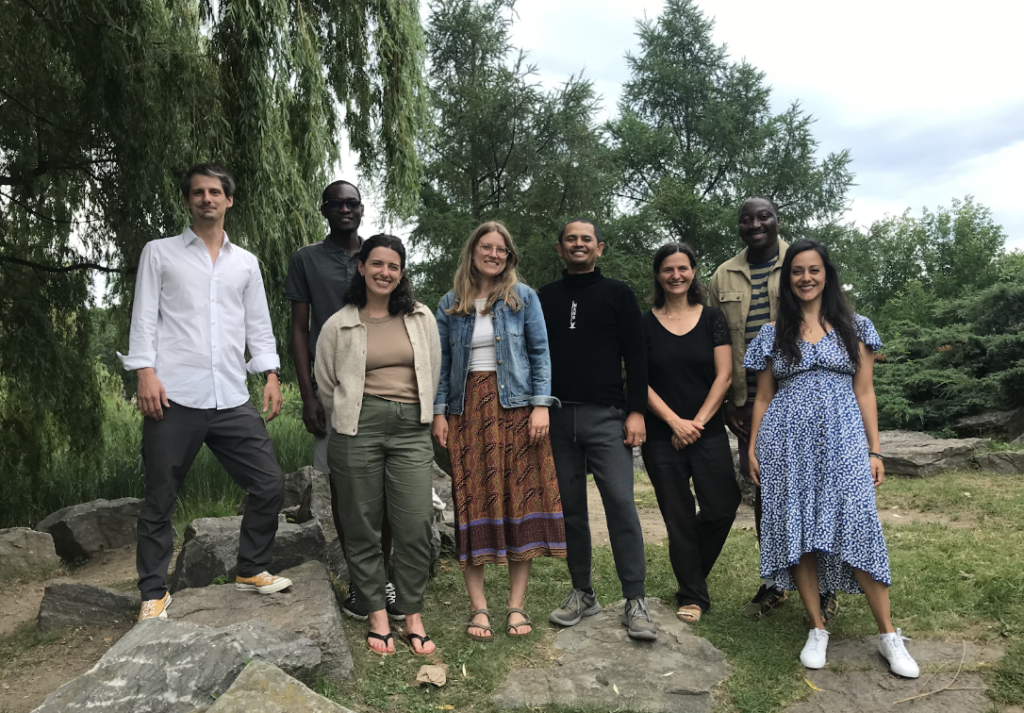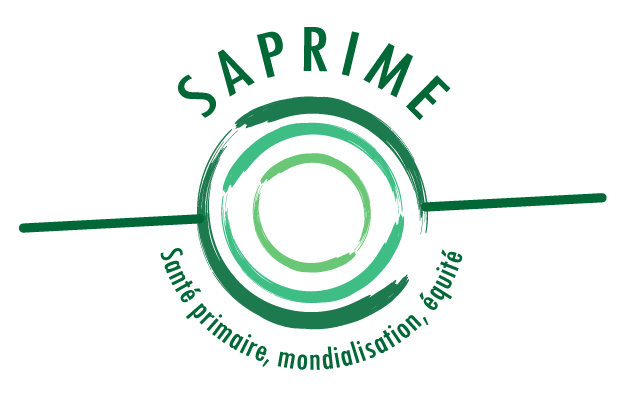SAPRIME is a multidisciplinary research lab focused on global health. Its focus is on the interface between primary health care systems, globalization, and interventions to improve population health.

The lab is directed by Prof. Thomas Druetz and is composed by a diversified team, including master, doctorate, and postdoctoral students. It collaborates closely with university partners in Canada and researchers in Haiti and sub-Saharan Africa.
The logo summarizes the three concepts at the core of lab’s activities:
1. The line represents the “first line” of health care: meaning primary health.
2. The spiraling circles are a schematic representation of the turbulent world, symbol of accelerated globalization and its issues.
3. And the tilted position of the line, symbolizes a misbalance, to represent inequity, at the global level.
The dominant color is green, to remind what, in our opinion is the biggest challenge of the 21 st century: the ecocide.

Most of the lab’s projects are conducted in sub-Saharan Africa and cover different domains of global health. Their common aim is to help understand how primary health care systems can be strengthened effectively and sustainably.
Research tools in global health: brief introduction to methodology topics, links to useful websites, information on conferences and others.
Physical address
Office 3151 (3rd floor)
7101 av. du Parc, Montréal
Postal address
Montreal University (Université de Montréal)
C.P.6128, City center branch,
Montréal, Québec
H3N 1X9
SAPRIME (Global health, Globalization, and Equity, in the French acronym), explores global health with a critical perspective on globalization and its effects on population health, particularly through the lenses of power and domination. By examining the implementation and the effects of health policies and programs, our goal is to provide useful and rigorous evidence to improve the health of communities, especially those in rural or underserved areas.
The research lab SAPRIME is located in the School of Public Health of the University of Montreal (ESPUM), and attached to the Research Center in Public Health (CReSP) The director of the lab, Prof. Thomas Druetz, is also affiliated to the Montréal Centre for International Studies (CERIUM), the Research Group for Nutritional Transition (TRANSNUT, and to the Center for Applied Malaria Research and Evaluation (, at Tulane University).
At the core of the lab is the concept of primary health, as established at the 1978 Alma-Ata Conference, that aims to challenge the dominant biomedical health paradigm. Primary health care is seen as "an integral part both of the country's health system, of which it is the central function and main focus, and of the overall social and economic development of the community"*. In this vision, primary health care goes beyond medical care. It aims to improve the wellbeing of the entire population and to reduce heath inequalities through multisectoral actions, both preventive and therapeutic. For this reason, primary health care cannot be studied without considering the context of globalization. Globalization acts as a structural determinant on actors, practices, and policies, at a global, national, community or individual level.
The lab’s projects aim to understand how we could act to strengthen primary health systems effectively and sustainably. Its vision can be described as counter current. It favours topics and interventions rooted in local realities and considering the issues of domination associated with globalization. This contrasts with dominant models that are based on the misappropriation and the exportation of the most recent technological innovations.
*World Health Organization. Regional Office for Europe. (1978). Declaration of Alma-Ata. World Health Organization. Regional Office for Europe. https://iris.who.int/handle/10665/347879